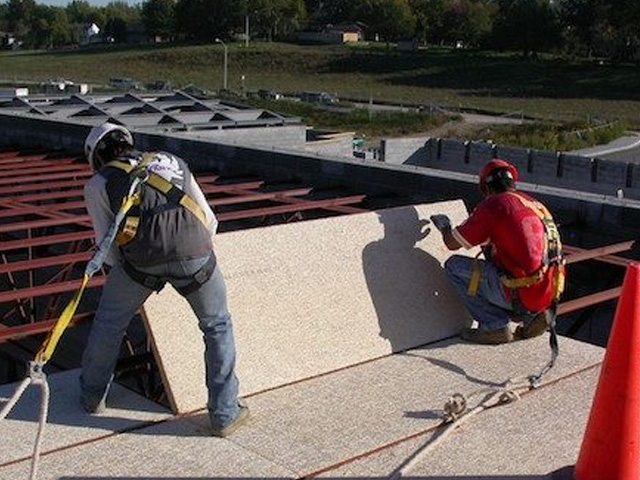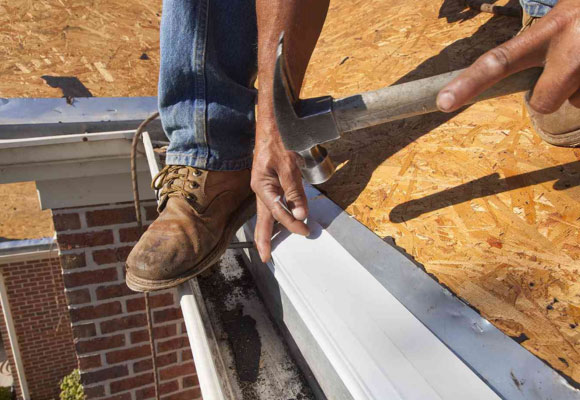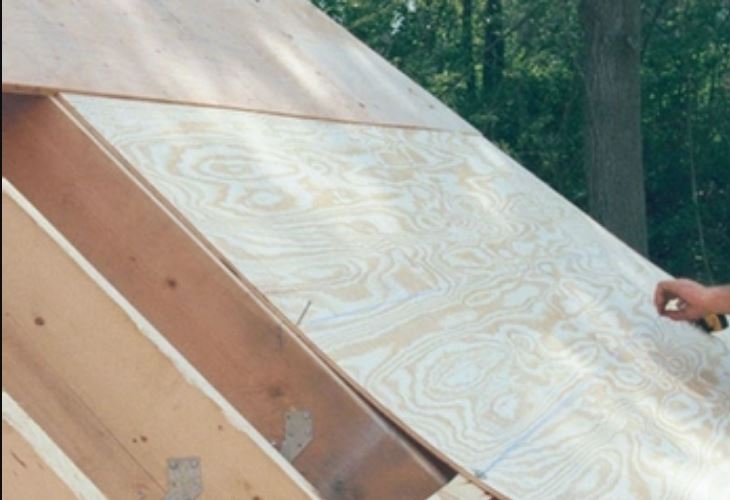Florida, known for its vibrant tropical climate, is a state that often poses challenging circumstances for homeowners. Roof replacement is one such challenge.
While hiring a professional is often recommended, the question arises: Can a homeowner replace their roof in Florida?
The answer is, technically, yes. However, this task comes with a set of complexities and potential pitfalls.

This guide will help you navigate these hurdles, exploring the legal, safety, and practical aspects of a DIY roof replacement in the Sunshine State.
Understanding the Roof Replacement Process
Roof replacement is a hefty task involving more than just swapping old shingles for new ones.
It’s a process that demands familiarity with elements like attic inspection, truss, and rafter integrity, the proper use of flashing for weatherproofing, and the specific pros and cons of various roofing materials like asphalt shingles, metal, or even glass.
Remember, knowledge is the key. It’s crucial to thoroughly comprehend your roof’s current state and the detailed steps needed to replace it.
Building Codes and Legal Implications
Florida building codes, statutes, and local laws significantly affect residential roof replacement. These codes ensure the safety and efficiency of the structure.
Before starting, homeowners should consult an inspector or local building authority to understand these regulations.
Non-compliance can lead to legal issues or even compromise your home insurance, so this isn’t a step to overlook.
Safety Concerns and Necessary Precautions
Roof work comes with inherent risks. Safety measures such as proper ladder usage, appropriate clothing, and harness systems are vital.

More complex structures might involve working around dormers or navigating pitched roofs, adding another layer of risk.
Potential hazards can also lurk beneath the roof shingles. For instance, old homes may contain asbestos cement, which poses serious health risks if disturbed.
Considering all these factors before embarking on a DIY project of this scale is essential.
The Role of Experience and Expertise
Experience can’t be overstated when undertaking a DIY roof replacement. It’s not just about the physical labor but the finesse and judgment calls gained through years of work.
Installation mistakes can lead to blisters on asphalt shingles, improperly installed rain gutters, or a less-than-watertight seal around flashing.
It’s worth mentioning that some warranties for roofing materials like asphalt shingles or metal roofing may be voided if installed by non-professionals.
Assessing Your Home’s Specific Needs
Every home is unique, from the attic’s structure to the shape and slope of the roof.
Some homes may be better suited to a flat roof, while others could benefit from modular building techniques.
The environment may also present particular challenges. In Central Florida, for instance, preparing for the heavy winds of a tropical cyclone might be a significant factor in your roofing choice.
Professional Help vs. DIY
Given the many factors involved, many homeowners hire professionals for roof replacements.
Their expertise and thorough knowledge of building codes and safety measures can provide peace of mind. Their work is often backed by warranties and insurance, protecting your investment.
DIY is possible but demands extensive knowledge, the right tools, and meticulous attention to detail. With safety, legal, and practical considerations, it’s a choice that shouldn’t be taken lightly.
The Importance of Regular Maintenance
Whatever your choice, remember that regular maintenance can prolong the life expectancy of your roof.
Regular inspections can catch potential issues early, preventing leaks, wood rot, and structural damage.
Wrapping Up
So, can a homeowner replace their roof in Florida? Yes, but this task is not without its complications.
It’s a decision that requires a significant investment of time, resources, and, crucially, the knowledge to do the job right.
Ensuring the job is done correctly and safely, in compliance with Florida building codes, is essential.
We hope this guide provided valuable insights into the world of DIY roof replacement in Florida.
Whether you’re picking up the hammer yourself or hiring a professional, remember – taking care of your home is an investment in its future.
Frequently Asked Questions
Can I replace the roof by myself in Florida?
Yes, you technically can replace the roof by yourself in Florida.
However, it is important to note that this task requires significant knowledge and skill to perform correctly and safely.
There are also legal considerations, like building codes and permits, that you must follow. Hiring a professional roofer for this job may be more practical and safer.
Do I need a permit to replace my roof in Florida?
You will likely need a permit to replace your roof in Florida. Building permits are usually required for major home renovations, including roof replacement.
It’s important to check with your local city or county building department for specific permit requirements in your area.
What is the new roofing law in Florida?
However, on May 26, 2022, SB 4-D took effect, eliminating Florida’s 25% Roof Replacement Rule.
However, laws and regulations can change. You should check with local authorities or legal professionals for current information.
Does a general contractor need a roofing license in Florida?
In Florida, a general contractor’s license does not allow you to do roofing work.
Roofing is considered a specialty trade, requiring a separate roofing contractor’s license. Even if a general contractor hires a roofing subcontractor, the subcontractor must have a roofing license.

Arthur is a skilled roof worker with over 10 years of experience in the industry. He started his career as an apprentice and worked his way up to become a foreman.
When he’s not working on roofs, John enjoys with his family or writing posts. He is also a passionate cyclist.

